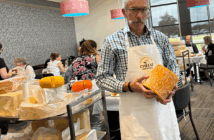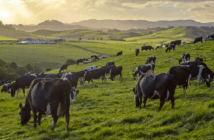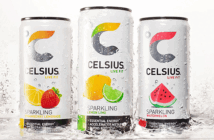 By Food Futurist, Tony Hunter
By Food Futurist, Tony Hunter
While the pandemic has shown us that the global food system is very resilient, some weaknesses have been highlighted.
In particular, some countries temporarily banning food exports showed that, in a crisis, countries will look after themselves first. It clearly demonstrated that countries that have arable land and freshwater have food, those that don’t are at the mercy of those that do. So, what about countries like the UAE and Singapore which import 85-90% of their food because they’re subject to these twin tyrannies of arable land and freshwater?
How can new technologies help?
A technology able to address both tyrannies simultaneously is the algal bioeconomy. That’s firstly because many algae can be grown in seawater, and secondly that they can be grown on non-arable land in ponds or bioreactors. Both characteristics also make algae a resilient crop in the face of climate change.
There are over 300,000 known species of algae, the total number could be in the millions, and only 10 are grown commercially. They’ve evolved across numerous ecological niches and produce an enormous amount of valuable bioproducts. Algae can also be hugely productive, reaching an annual protein yield of 4-15 tonnes per hectare, far more than the 0.6 to 1.2 tonnes per hectare for soybeans, pulses and legumes. Add in that most of the high-value products extracted from higher plants are naturally produced by algae, or they could be genetically engineered to do so, and their advantages multiply.
Commercialisation is already happening
Some examples of algal products include;
- Unilever recently partnered with biotech startup Algenuity to manufacture products for Unilever’s plant-based portfolio.
- Back of the Yards Algae Sciences new algae-based heme, the same ingredient that makes the Impossible Burger ‘bleed’.
- Iwi’s marine algae protein which, according to the company, has more total essential amino acids than whey or egg.
- Australia’s Provectus, who take a novel approach by varying the wavelength of light to manipulate their algae to produce specific high value products.
So, next time you see some green algal slime, don’t be so dismissive, it could be lunch!
Tony Hunter is a global futurist, food scientist, speaker and foresight strategy consultant. He consults and speaks globally, using his distinctive combination of scientific qualifications, business experience and detailed understanding of exponential food technologies to deliver a unique perspective on the future of food.






























































































